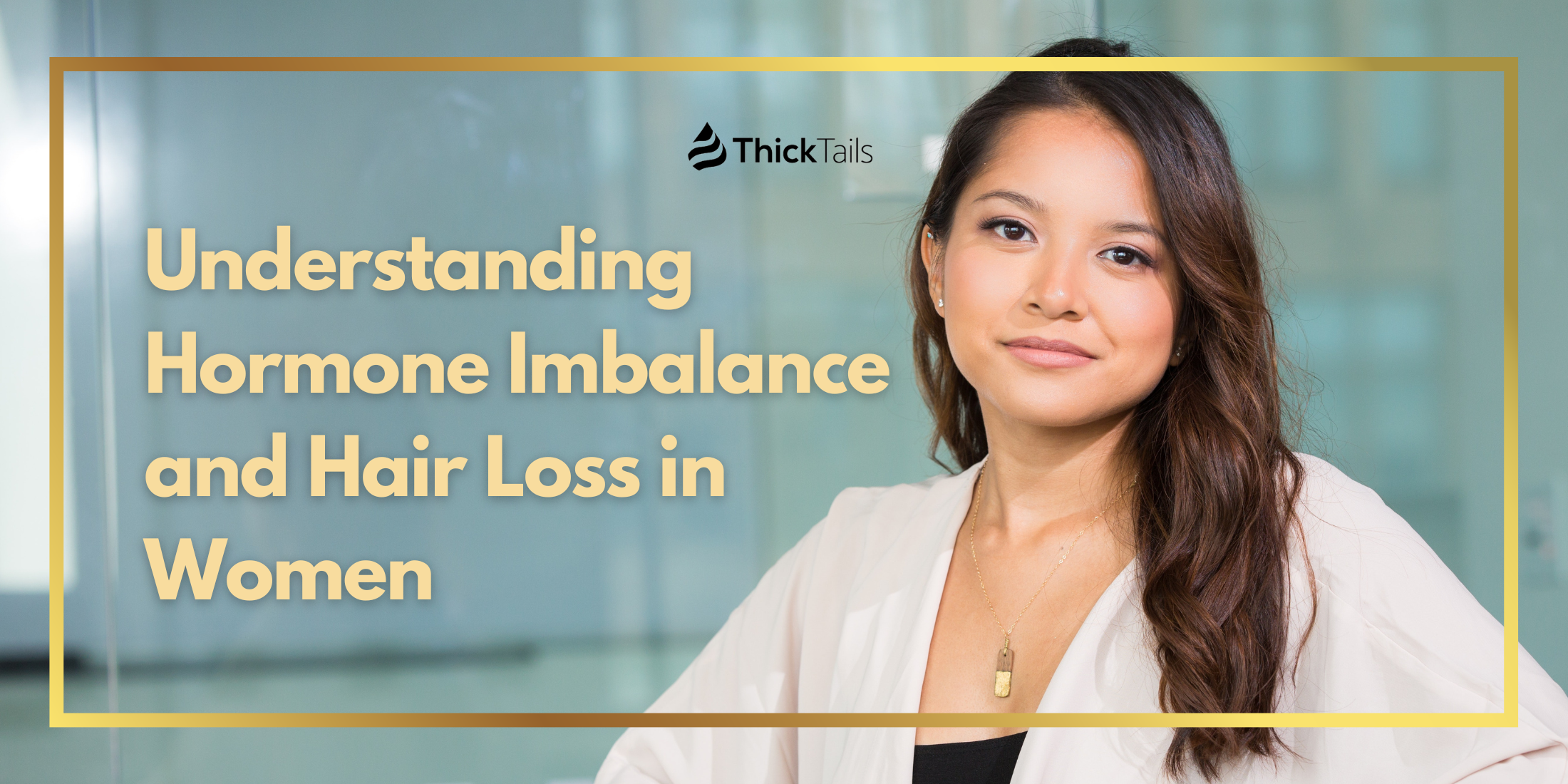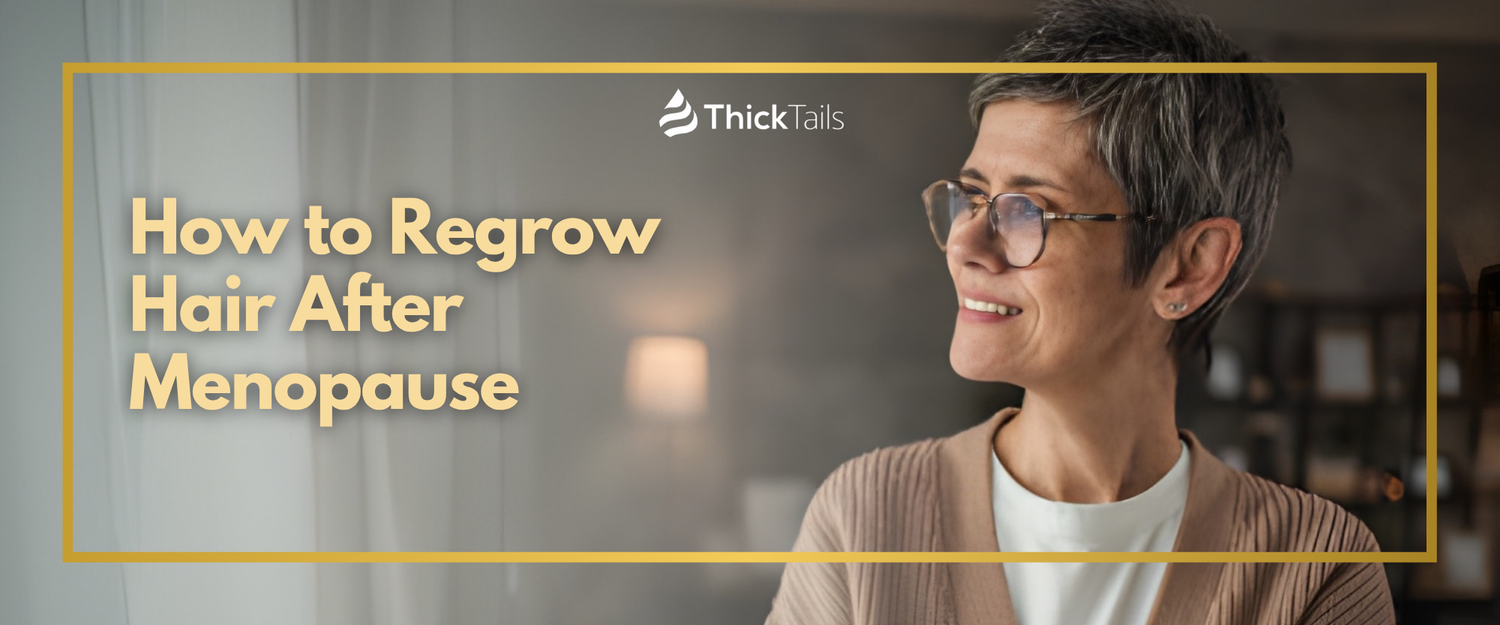Ben je een vrouw wiens haar aanzienlijk is verdoofd of eruit gevallen? Merk je dat je je zorgen maakt over de hormoonspiegels van je lichaam, en wat hun relatie is met de staat van je sloten? Ben je op zoek naar antwoorden die helpen om zowel je hormonen als haarzakjes weer in balans te krijgen? Zoek niet verder - omdat we hier zullen bespreken hoe veranderingen in hormoonspiegels vaak leiden tot haarverlies bij vrouwen, samen met tekenen en symptomen die een probleem aangeven. We zullen ook farmaceutische benaderingen onderzoeken in combinatie met natuurlijke remedies die worden gebruikt tijdens het herstel van postpartum, de overgang van de menopauze en de tijden van stressvolle levensverandering ook. Maak je klaar - het is misschien tijd voor een nieuw hoofdstuk bij het verkrijgen van controle over je hormonen!
I. Het hormonale web: hormonale onevenwichtigheden begrijpen

Hormonen spelen een cruciale rol bij het reguleren van talloze lichamelijke functies, van groei en ontwikkeling tot metabolisme en stemming. Onevenwichtigheden in hormoonspiegels kunnen echter leiden tot een groot aantal problemen, waaronder haarverlies. Of het nu wordt veroorzaakt door genetica, veroudering of een onderliggende gezondheidstoestand, haarverlies als gevolg van een hormonale onbalans kan pijnlijk zijn en iemands zelfrespect beïnvloeden. Inzicht in het complexe samenspel van hormonen in het lichaam, inclusief hun productie, transport en metabolisme, is cruciaal voor het aanpakken van hormonale onevenwichtigheden en het herstellen van haargroei. Met de juiste diagnose en behandelplan kunnen personen die haarverlies ervaren als gevolg van hormonale onevenwichtigheden nemen om hun zelfvertrouwen en de weelderige sloten die ze wensen te herwinnen.
A. Inleiding tot hormonen en hun rol
Hormonen zijn de chemische boodschappers die de functies van ons lichaam ondersteunen en reguleren. Ze worden geproduceerd door verschillende klieren en spelen een cruciale rol bij het oplossen van verschillende gezondheidsuitdagingen. Veel mensen lijden bijvoorbeeld aan haarverlies vanwege hormonale veranderingen. Kaalheid heeft veel te maken met de niveaus van hormonen in het lichaam, zoals androgenen en oestrogeen. Hormonen kunnen haarzakjes beïnvloeden en hun groeicyclus verstoren, waardoor haar eruit valt en niet wordt vervangen. Inzicht in de rol van hormonen kan u helpen de controle over uw gezondheid te nemen en haarverlies te voorkomen.
B. Veel voorkomende oorzaken van hormoononevenwicht
Hormoononalance kan een reeks onaangename symptomen veroorzaken, van onverklaarbare gewichtstoename tot stemmingswisselingen en acne -puistjes. Inzicht in de gemeenschappelijke oorzaken van hormonale onevenwichtigheden is de sleutel tot zowel preventie als behandeling. Een van de belangrijkste oorzaken is chronische stress, die de overproductie van cortisol in het lichaam leidt en leidt tot onevenwichtigheden in andere hormonen, zoals testosteron. Slecht dieet en voeding, inclusief overmatige suikerconsumptie en lage inname van essentiële voedingsstoffen zoals zink en vitamine D, kunnen ook schade aanrichten aan het hormonale systeem. Bovendien kunnen bepaalde medicijnen en medische aandoeningen zoals polycysteus ovariumsyndroom (PCOS) en schildklieraandoeningen hormonale onevenwichtigheden veroorzaken. Door deze onderliggende oorzaken aan te pakken, kunnen individuen werken aan het herstellen van het evenwicht naar hun hormonen en het verbeteren van de algehele gezondheid en het welzijn.
C. Hormoononevenwicht en het effect ervan op de gezondheid van haar
Hormonen zijn chemische boodschappers die een belangrijke rol spelen in onze algehele gezondheid. En wanneer er een onbalans is, kan dit leiden tot een breed scala aan problemen, waaronder haarverlies en slechte haargezondheid. Hormonen zoals oestrogeen en testosteron kunnen de haargroei en textuur sterk beïnvloeden. Overtollig testosteron kan bijvoorbeeld leiden tot haarverdunning bij vrouwen, terwijl lage niveaus van oestrogeen ervoor kunnen zorgen dat haar droog en bros wordt. Hormonale onbalans kan ook het begin van androgene alopecia veroorzaken, een genetische aandoening waarbij de haarzakjes krimpen, wat leidt tot haarverlies. Dus als u haarverlies of een verandering in de textuur van uw haar ervaart, kan het de moeite waard zijn om bij uw arts in te checken om te zien of er een onderliggend hormonaal probleem is dat moet worden aangepakt.
II. De draden ontrafelen: triggers en symptomen van haarverlies
Misschien is een van de meest voorkomende schoonheidsproblemen, haarverlies beïnvloedt zowel mannen als vrouwen van alle leeftijden. Hoewel het verliezen van haar pijnlijk kan zijn, is het essentieel om de triggers en symptomen te begrijpen om dit probleem effectief aan te pakken. Er zijn verschillende soorten haarverlies, zoals patroonkaalheid en telogeen effluvium, elk met unieke tekenen en oorzaken. Factoren zoals genetica, hormonale veranderingen en medische aandoeningen kunnen leiden tot haarverlies. Gelukkig kunnen verschillende behandelingsopties zoals medicijnen, haartransplantaties en levensstijlveranderingen helpen om haarverlies effectief te beheren. Het identificeren van de triggers en het begrijpen van de symptomen van haarverlies is de eerste stap om een geschikte behandeling te vinden en de gezondheid van uw haar te herwinnen.
A. Hormoon-gerelateerde haarverlies identificeren triggers
Haarverlies kan een pijnlijke ervaring zijn voor vrouwen, vooral wanneer het plotseling en zonder uitleg lijkt op te komen. Hoewel er verschillende factoren zijn die kunnen bijdragen aan haarverlies, is een vaak over het hoofd gezien dader hormonen. Hormoongerelateerd haarverlies kan een aantal verschillende triggers hebben, waaronder genetische aanleg, stress en bijwerkingen van medicatie. Het identificeren van de specifieke oorzaak van uw haarverlies kan een ingewikkeld en frustrerend proces zijn, maar het is een belangrijke eerste stap in het vinden van een oplossing die voor u werkt. Als u worstelt met haarverlies dat gerelateerd lijkt te zijn aan hormonale veranderingen, praat dan met uw arts of een dermatoloog om uw symptomen uit te zoeken en de beste manier van handelen te achterhalen.
B. Het herkennen van de veelbetekenende tekenen: symptomen van haarverlies
Voor velen kan het verliezen van haar een pijnlijke ervaring zijn die iemands zelfrespect negatief kan beïnvloeden. Het goede nieuws is dat het herkennen van de veelbetekenende tekenen van haarverlies u kan helpen de juiste stappen te ondernemen om het probleem aan te pakken. Een van de belangrijkste symptomen om op te letten is overmatig haar vallen. Als u meer haarlokken op merkt dan normaal op uw kussen, kam of doucheveer, is het tijd om uw haarverliessituatie te evalueren. Een andere veel voorkomende indicator voor haarverlies is het verschijnen van kale vlekken, die te zien zijn in verschillende delen van de hoofdhuid. Als u een van deze symptomen opmerkt, is het belangrijk om een dermatoloog of haarverzorgingsprofessional te raadplegen om de oorzaak van uw haarverlies te bepalen en de beste oplossing voor uw unieke behoeften te vinden.
C. Casestudy's: Real-Life-ervaringen van vrouwen met door hormoon geïnduceerde haarverlies
Haarverlies is een onderwerp dat vaak taboe kan aanvoelen, vooral voor vrouwen. Het is echter een realiteit voor veel vrouwen die door hormoon geïnduceerd haarverlies ervaren. Casestudy's bieden real-life ervaringen die kunnen helpen licht te werpen op dit probleem. Door persoonlijke verhalen te delen, kunnen vrouwen verbinding maken en troost vinden in het weten dat ze niet alleen zijn. Deze verhalen kunnen ook inzicht bieden in de verschillende oorzaken van haarverlies, evenals potentiële oplossingen. Hormoon-geïnduceerd haarverlies kan een frustrerende en isolerende ervaring zijn, maar casestudy's kunnen hoop en ondersteuning bieden voor degenen die met deze aandoening te maken hebben.
Iii. Oplossingen voor herstel: bewezen strategieën om haar en vertrouwen te herwinnen

Het verliezen van haar kan een van de meest verontrustende ervaringen zijn die een persoon kan doorstaan. Het kan niet alleen hun zelfvertrouwen beïnvloeden, maar het kan ook van invloed zijn op hun algemene kijk op het leven. Gelukkig zijn er bewezen strategieën die kunnen helpen haar te herstellen en mensen uiteindelijk hun zelfverzekerdheid terug te geven. Geavanceerde technologieën, zoals haartransplantatiechirurgie en hoofdhuidmicropigmentatie, hebben bewezen succesvol te zijn in het herstellen van haar en het creëren van een meer natuurlijke look. Bovendien hebben veranderingen in levensstijl en actuele behandelingen ook veelbelovend aangetoond om verder haarverlies te helpen voorkomen. Met een scala aan beschikbare opties, is het belangrijk dat mensen die worstelen met haarverlies om te weten dat er oplossingen zijn. Wat de reden voor haarverlies ook is, de juiste behandeling kan zowel fysiek als emotioneel herstel bieden.
A. Medische interventies: hormoontherapie en supplementen
Hormoontherapie en supplementen zijn twee medische interventies die een aanzienlijke impact kunnen hebben op de algehele gezondheid van een persoon. In het bijzonder als het gaat om haargezondheid supplementen Kan essentiële voedingsstoffen bieden om groei te bevorderen en schade te voorkomen. Hoewel hormoontherapie mogelijk niet direct gericht is op haargroei, kunnen bepaalde hormonen bijdragen aan dunner worden of verlies. Door onevenwichtigheden aan te pakken door hormoontherapie, kunnen individuen ook een verbetering van hun haargezondheid zien. Met de juiste combinatie van medische interventies, zoals hormoontherapie en Haarsupplementen, het is mogelijk om voller, gezonder haar te bereiken.
B. Lifestyle -veranderingen voor hormoonbalans
Het balanceren van je hormonen kan een lastige taak zijn, maar het is essentieel voor algehele gezondheid en welzijn. Het handhaven van een gezonde levensstijl is de sleutel en het aanbrengen van enkele eenvoudige levensstijlveranderingen kan helpen om uw hormonen op natuurlijke wijze te balanceren. Een van de veranderingen die u kunt aanbrengen, is op te nemen Haarsupplementen in je routine. Deze supplementen zitten boordevol essentiële vitamines en mineralen die helpen bij het bevorderen van een gezonde haargroei, maar ze spelen ook een cruciale rol in de hormonale balans. Bepaalde vitamines, zoals vitamine D en B -complex, zijn cruciaal voor hormoonregulatie en nemen supplementen kan uw inname stimuleren. Dus als u op zoek bent naar uw hormonen en een gezonde haargroei ondersteunt, is het toevoegen van een haarsupplement aan uw routine misschien wel het lust!
C. Haarverzorgingsregimes op maat gemaakt voor hormoongerelateerd haarverlies
Het omgaan met haarverlies kan een stressvolle ervaring zijn, vooral als het wordt veroorzaakt door hormonale onevenwichtigheden. Dat is de reden waarom haarverzorgingsregimes op maat worden gemaakt voor hormoongerelateerd haarverlies worden steeds populairder. Deze regimes omvatten verschillende remedies, zoals Haarsupplementen, gespecialiseerd Shampoos en conditioners en serums. Door de tijd te nemen om de wortel van het probleem aan te pakken, willen deze regimes het haar van binnenuit voeden en versterken. Of u nu haarverlies ervaart als gevolg van de menopauze, zwangerschap of een ander hormonaal probleem, deze regimes zijn ontworpen om u te helpen voller, gezonder haar te bereiken. Dus als je het zat bent om je zelfbewust te voelen over je dunner wordende haar, is het misschien tijd om de beschikbare opties te verkennen.
Concluderend, zoals deze blogpost heeft ontdekt, is haarverlies bij vrouwen nauw verbonden met hormoononevenwichtigheden veroorzaakt door verschuivingen in de natuurlijke chemie van het lichaam. Gelukkig zijn er behandelingen en levensstijlveranderingen beschikbaar om het onderliggende probleem aan te pakken en de gezondheid van haar te herstellen. De sleutel is het achterhalen van de juiste triggers en symptomen die u een routekaart geven voor een effectieve oplossing. Van hormoontherapie en supplementen Voor aangepaste haarverzorgingsregimes heeft het begrijpen van de oorzaken en effecten van onbalans het leven veranderd van veel vrouwen die worstelen met door hormoon geïnduceerd haarverlies. Het is niet nodig om in stilte te lijden; Neem in plaats daarvan de leiding over uw gezondheid en vind de middelen om u meer zelfverzekerd te bereiken!







